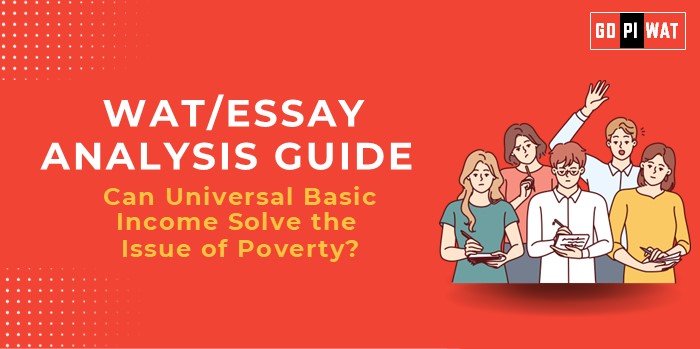📋 Can Universal Basic Income Solve the Issue of Poverty?
🌐 Understanding UBI’s Importance
Universal Basic Income (UBI) addresses critical socio-economic issues like poverty and inequality, offering relevance to discussions on economic justice, welfare efficiency, and future labor markets.
🕒 Effective Planning and Writing
- ⏱️ Time Allocation:
- Planning: 5 minutes
- Writing: 20 minutes
- Review: 5 minutes
- 📚 Preparation Tips: Gather key statistics, case studies, and arguments for and against UBI.
💡 Introduction Techniques for Essays
- Contrast Introduction: “While 9.2% of the world lives in poverty, universal basic income promises dignity, but at a high fiscal cost.”
- Solution-Based Introduction: “As automation disrupts traditional jobs, UBI offers a safety net, ensuring financial stability in uncertain times.”
📊 Structuring the Essay Body
- Achievements: UBI boosts consumer spending and enhances quality of life.
- Challenges: Fiscal strain, targeting inefficiencies, and inflation risks.
- Future Outlook: Recommend hybrid models combining UBI with skill-building initiatives.
📄 Concluding Effectively
- Balanced Conclusion: “UBI can revolutionize poverty alleviation, provided fiscal challenges are mitigated through innovative funding models.”
- Global Comparison Conclusion: “From Kenya to Finland, UBI trials reveal its potential to enhance equity and resilience in diverse socio-economic contexts.”
✍️ Sample Short Essays
- Balanced Perspective: “UBI’s potential to address poverty is undeniable, but its success lies in phased implementation to ensure fiscal sustainability.”
- Solution-Oriented: “By integrating UBI with digital payment systems, governments can revolutionize welfare delivery.”
- Global Lens: “From Kenya’s rural experiments to Finland’s urban trials, UBI’s adaptability offers hope for eradicating global poverty.”


